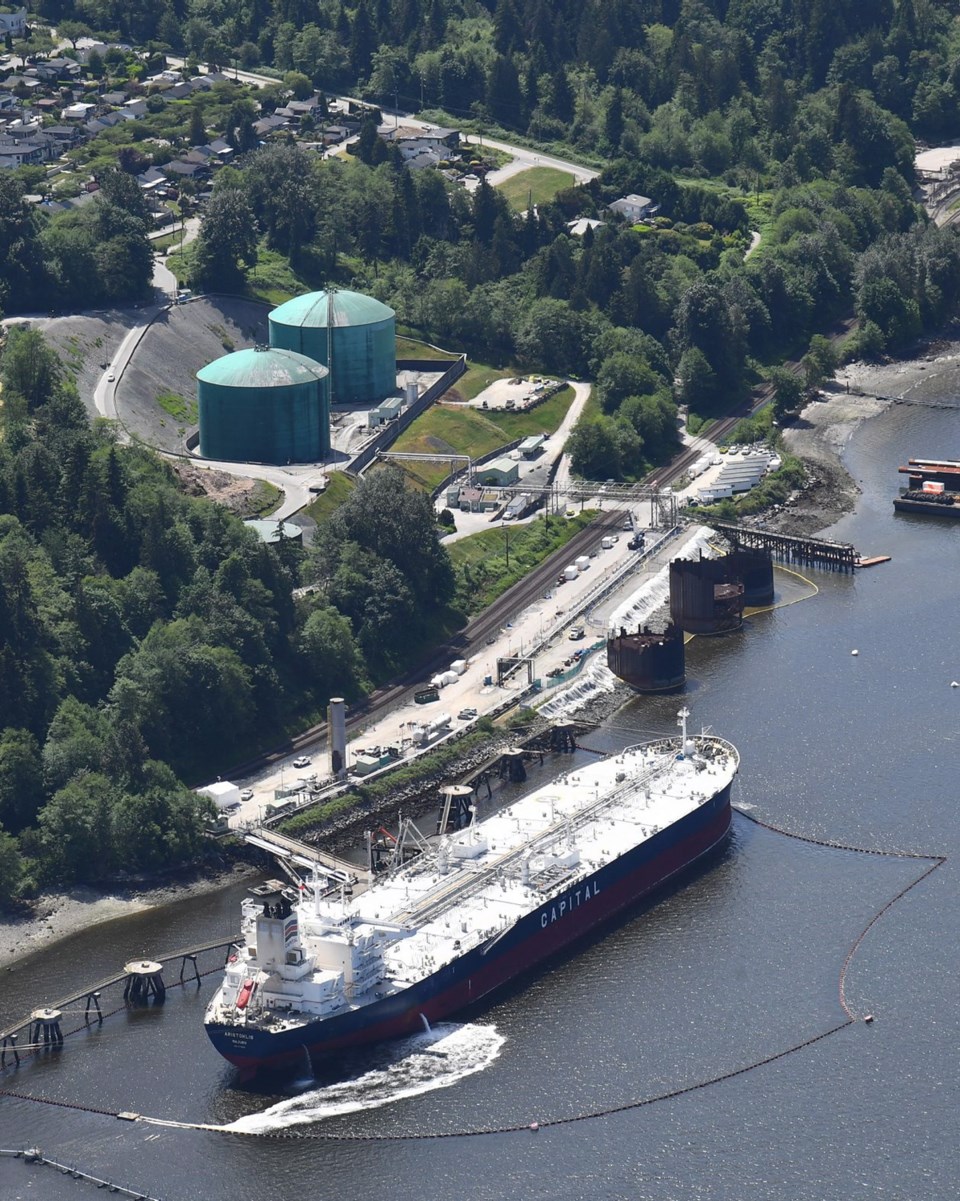First Nations from B.C. and Alberta are expected to meet this month in Vancouver to discuss the possibility of purchasing a stake in the Trans Mountain pipeline.
The meeting on July 25 at the Vancouver Convention Centre is to be hosted by the Fort McKay and Mikisew Cree First Nations, according to Fort McKay First Nation chief Jim Boucher.
The two Alberta First Nations publicly stated an interest in an ownership stake in the project following the announcement in May the federal government was purchasing the existing Trans Mountain pipeline and its expansion project for $4.5 billion.
Last year, Fort McKay and the Mikisew raised $545 million through a bond issue to acquire a 49 per cent stake in Suncor Energy’s oilsands storage facilities north of Fort McMurray.
Boucher said he believes there is wider interest by First Nations in an ownership stake in the Trans Mountain project. “I think we should continue working on this so that it comes to fruition. I think we have a good opportunity,” Boucher said.
He said there has also been communication with the federal government that has included Finance Minister Bill Morneau, Natural Resources Minister Jim Carr and Minister of Infrastructure Amarjeet Sohi.
“I think they are responding favourably. So far, we have received encouragement,” said Boucher.
He said he didn’t see any problem in raising money in the bond market to purchase a stake in the pipeline project, which filed a six-month construction schedule with the National Energy Board for the expansion.
Trans Mountain says it will begin this month to develop the Westridge Marine Terminal tunnel portal at Burnaby Mountain and relocate existing infrastructure to expand the Burnaby Terminal. It also says work on a 290-kilometre stretch of pipeline between Edmonton and Jasper National Park will start in August and include surveying, staking and flagging the right-of-way.
It says it will clear trees and vegetation in the area while taking measures to protect the environment with relocation of rare plants and by conducting wildlife surveys.
In September, surveying, staking and flagging the right-of-way will begin in North Thompson, on a 120-kilometre stretch between Mt. Robson Provincial Park and Blue River.
The project faces stiff opposition from some First Nations, including the Tsleil-Waututh and Squamish First Nations on the B.C. coast, who are among those who are awaiting the outcome of a federal court challenge that could come any day.
However, 43 First Nations have signed benefit agreements with Kinder Morgan valued at $400 million, 33 of those in B.C. Those benefit agreements will be taken over by the federal government.
Some of the B.C. First Nations have also publicly stated interest in a potential ownership stake in the project depending on the conditions, including the Cheam, Whispering Pines and Lower Nicola First Nations.
Lower Nicola First Nation chief Aaron Sumexheltza said he would like to sit down with the federal government and discuss their conditional benefit agreement, originally inked with Kinder Morgan, but there are other issues of concern including environmental and safety issues and compensation for past infringements.
He said his First Nation could be interested in discussing an ownership stake, but has not been approached by any First Nation in B.C. or Alberta about the possibility and was unaware of the Vancouver meeting.
“Definitely it would be something we should have a discussion about, but at the same time we have an aging pipeline — over 60 years old — plus potential expansion that is not guaranteed,” he said.
Liberal MLA Ellis Ross, a former chief councillor of the Haisla Nation, said he’s positive some B.C. First Nations will be interested in investing in the pipeline once Ottawa makes clear the terms for doing so.
“It will be progressive First Nations that will be entertaining the offer, they’ll understand that they’ll have the revenue to help my community and have the opportunity to get more of my people employed,” he said. “It’s a huge step for First Nations.”
Ross, the MLA for Skeena, said having Indigenous communities included in national economic projects is “the last piece of the puzzle” on rights, title, accommodation and consultation.
But it will also largely depend on the terms Ottawa puts on those interested in investing.
“That’s the $7-billion question because in my mind it’s not just a straightforward business deal,” he said. “What’s a fair offer when you are dealing with rights and title? Is it a straight out offer, or do you give them a discount or is it a government-backed loan? There are so many ways to skin this cat.”
Federal Finance Minister Bill Morneau declined an interview on First Nations buy-in to the pipeline.
“Many investors have already expressed interest in the project, including Indigenous groups, Canadian pension funds and others,” Morneau’s office said in a statement. “The government welcomes this interest and will proceed when it is in the best interest of Canadians to do so.”



